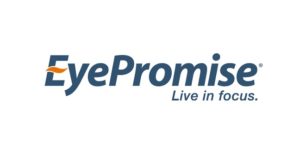
Nutrition is a buzz word for many of us, and we know it’s imperative to living a healthy lifestyle. Thanks to our last blog “Why Is Supplementation Important”, we also know that getting all the nutrients our bodies, specifically our eyes, need through our diet alone can be difficult to say the least. Short of having a personal chef who assembles lavishly nutritious meals for you daily, it’s safe to say that most of us don’t have the time, resources, or know-how to eat for our eyes. That’s why supplements and vitamins were created.
What Is Supplementation?
Let’s start simple – what is “supplementation”? The definition of supplementation is “the addition of an extra element or amount to something.” Nutrition International simply states that “Sometimes food is not enough,” and that’s the intention behind supplementation. It’s meant to supplement or fill a gap in dietary need. Whether it’s access to healthy foods, the body’s inability to process foods correctly, or the scarcity of certain important nutrients in the diet (cough zeaxanthin cough), supplementation becomes necessary for improving eye and overall health.
How Does It Work?
Supplements deliver a highly bio-available (aka: easily absorbable for the body) substance that the body can easily identify and utilize. There are several different delivery methods for supplementation ranging from a softgel to a chewable tablet to a drinkable formula. Though some delivery methods claim to be better absorbed, it really depends on the quality and potency of the ingredients included in the vitamin.
What Can You Supplement?
From vitamins and minerals to protein and more, supplementation can deliver a variety of nutrients. A supplementation regimen or recommendation is based largely on an individual’s health needs. However, knowing the general public’s lack of eye-specific nutrition, there are a few recommended ingredients:
• Zeaxanthin – a critical antioxidant found in orange bell peppers and paprika peppers. This nutrient supports crisp, clear central vision and helps us see in the dark or dim lighting situations.
• Lutein – another carotenoid, or antioxidant, found largely in the eyes, brain, and blood. Supplied by leafy greens like kale, spinach, and collard greens, lutein protects our peripheral vision and keeps our eyes seeing bright colors at their most vivid.
• Omega-3s – fatty acids found in fish like white pollock, salmon, and anchovies. These critical nutrients support many areas of the body, including brain, heart, and eye health. For the eyes, they help support the creation of the lubrication that comforts the eye’s surface and reduces dryness and inflammation that can cause irritation.
Who Should Utilize Supplementation?
Everyone!
No really. Odds are, everyone could benefit from some sort of nutritional supplementation, but again, it depends on individual need. Your eyes are no different, meaning they could need different kinds of nutrients to help them function at peak performance. For example, someone who is working on a computer all day will need different nutritional protection than someone with diabetes. The same is true for adults vs. children.
Whether you call them dietary supplements or vitamins, they meant the same thing: adding additional, necessary nutrition to support a healthier you. To learn more, visit EyePromise at booth #607 or go online to eyepromise.com.

No comments yet.